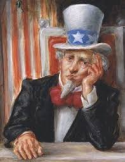Friday Bible Blogging - Proverbs 11 to 20
This entry is part of a series. For a listing of all entries in the series, go to the Index. Unless otherwise noted, all Bible quotations are from the New Revised Standard Version (NRSV). All headings are links to those Bible chapters.
 Today's entry continues on with Proverbs, covering chapters 11 through 20. The introductory materials from the first several chapters are now well behind me, and I'm now smack in the middle of actual proverbs.
Today's entry continues on with Proverbs, covering chapters 11 through 20. The introductory materials from the first several chapters are now well behind me, and I'm now smack in the middle of actual proverbs.
There's not really much structure to the proverbs. Sometimes you may get three or four verses in a row dealing with the same issue, but it's mostly just unconnected sayings. The chapter divisions seem to be based simply on length, with no overall themes uniting the proverbs in each chapter. In fact, the New Oxford Annotated Bible (NOAB) treats the footnotes for these chapters of proverbs differently from any other footnotes I've read so far. In every previous book I've read, the footnotes are divided up by chapter, with a short overview of the chapter before getting into specific verses. Here in Proverbs, however, the NOAB dropped the chapter divisions, and just has all the footnotes run together.
Most of these sayings are good - be honest, be hardworking, don't gossip, etc. But with as much general advice as is given, I'm not going to try to summarize all of it. I'm just going to focus on a few of the verses that caught my eye. And instead of calling it out every time I see it, since it occurs quite often, I'll note up here that there's too much language about God being the only source of knowledge, and indicating that those that don't believe in God are fools. Of course, this is to be expected in a book of the Bible, but it's still irritating, nonetheless. Any book that would classify Einstein, Gandhi, and the Dalai Lama as fools is probably a little extreme in its definition of a fool.
I thought this following verse was pretty funny. I just really like the imagery.
Like a gold ring in a pig's snout
is a beautiful woman without good sense.
This next one jumped out because of the movie about the Scopes Monkey Trial. It's always a bit interesting to come across these types of passages that are a part of pop culture.
Those who trouble their households will inherit wind,
and the fool will be servant to the wise.
I already mentioned this last week, but there's definitely an overriding sense of sexism in this book. Just consider this passage.
A good wife is the crown of her husband,
but she who brings shame is like rottenness in his bones.
It's all about how the utility of the woman to the man.
I always enjoy sayings like this one. I've heard quite a few modern variations, but this is obviously one of the older versions.
Those who guard their mouths preserve their lives;
those who open wide their lips come to ruin.
My favorite variation on this theme is a Spanish saying, "En boca cerrada, no entran moscas", sometimes appended with "ni salen estupideces". The main part loosely translates to "A shut mouth gathers no flies", with the addition meaning "nor says stupid things".
I also rather liked this saying.
Wealth hastily gained will dwindle,
but those who gather little by little will increase it.
That certainly seems to be the case even today. Look how many lottery winners or professional athletes end up squandering their fortunes.
The verse that caught my eye in this chapter was this one.
The simple believe everything,
but the clever consider their steps.
Granted, there are other parts of the Bible (particularly the New Testament) that have teachings somewhat counter to this, but it's certainly nice to see a proverb that cautions against gullibility and promoting skepticism.
This verse mentions a part of the afterlife that isn't discussed much in the Bible, with the focus usually being on Sheol.
Sheol and Abaddon lie open before the Lord,
how much more human hearts!
The NOAB had this to say about that verse, "Sheol, the underworld; Abaddon (lit. "Destruction") is an alternative abode for the place and state of the dead..."
Consider this verse.
Inspired decisions are on the lips of a king;
his mouth does not sin in judgement.
But just two verses later was this proverb.
It is an abomination to kings to do evil,
for the throne is established by righteousness.
Taken in isolation, that first proverb would be very troubling, almost like a blanket endorsement of monarchs (understandably if monarchs funded the compilation of this book). That second proverb at least helps to temper it somewhat, instructing kings to behave righteously.
I liked the imagery in this verse. It's a rather graphic warning.
One who loves transgression loves strife;
one who builds a high threshold invites broken bones.
This next proverb is similar to the one I already quoted from chapter 13, but I still like it.
when they close their lips, they are deemed intelligent.
Here's another skeptic-themed proverb. It's nice to see passages like this.
The one who first states a case seems right,
until the other comes and cross-examines.
This proverb is actually kind of sad. And I think it's meant that way, since there are many proverbs instructing the reader to be kind to the poor.
Wealth brings many friends,
but the poor are left friendless.
While I've mentioned the problems in the society that wrote Proverbs relating to sexism, this verse reveals another one.
It is not fitting for a fool to live in luxury,
much less for a slave to rule over princes.
Obviously, the writers didn't have the modern American idea of every man being created equal. It's rather jarring to see it so starkly stated that slaves don't deserve the same as others, or the implication that princes have a right to rule, and weren't just lucky to be born into it.
But lest you forget about the sexism, just a few verses later came this.
A stupid child is ruin to a father,
and a wife's quarrelling is a continual dripping of rain.
House and wealth are inherited from parents,
but a prudent wife is from the Lord.
It really is strange (and disturbing from a modern viewpoint) to see everything put into terms of how it affects the man of the family, as if that's the only important part. It's especially disturbing to see a wife included as part of the man's property.
Anyway, enough of the bad verses for a bit. Here's another good one.
What is desirable in a person is loyalty,
and it is better to be poor than a liar.
I especially like the second line, since I put such a high value on honesty.
It was the last verse of this chapter that caught my attention, but not in a good way.
Blows that wound cleanse away evil;
beatings make clean the innermost parts.
This is pretty vicious, and doesn't even make sense. Why would beating a person so hard that it wounded them 'cleanse away evil'? It might instill a bit of fear in them, or maybe instill bitterness to where they'd want vengeance, but I certainly don't see how the act of beating someone would make them a better person.
---
I know I called out a lot of the bad proverbs, but most of them range from neutral to good (neutral would be all the stuff about God, since from an atheist perspective, they're focusing on a make-believe being). And I did try to include proverbs that caught my eye for positive reasons. This is a decent book of the Bible to read.
New Revised Standard Version Bible, copyright 1989, Division of Christian Education of the National Council of the Churches of Christ in the United States of America. Used by permission. All rights reserved.

 Prompted by a recent political discussion with someone I know who's a big fan of Ben Carson, I've decided to take a closer look at this potential politician. For links to all of the entries in this series, go to the
Prompted by a recent political discussion with someone I know who's a big fan of Ben Carson, I've decided to take a closer look at this potential politician. For links to all of the entries in this series, go to the  It's over halfway through November, so I'm a little late in getting to this this month, but here's the list of the ten most popular pages on this site last month. Mostly, they're very similar to last month, including some pages that have only very recently surged in popularity. There were two pages making first time appearances in the list -
It's over halfway through November, so I'm a little late in getting to this this month, but here's the list of the ten most popular pages on this site last month. Mostly, they're very similar to last month, including some pages that have only very recently surged in popularity. There were two pages making first time appearances in the list -  Ugh. I'm not terribly surprised, given then way the polls were going, but this is still dispiriting, and especially disappointing that the polls appeared to have a slight Democratic bias this year that gave the Republicans a few more races than predicted (this bias goes back and forth, sometimes favoring one party, sometimes the other - more info:
Ugh. I'm not terribly surprised, given then way the polls were going, but this is still dispiriting, and especially disappointing that the polls appeared to have a slight Democratic bias this year that gave the Republicans a few more races than predicted (this bias goes back and forth, sometimes favoring one party, sometimes the other - more info: 

 The midterm elections are tomorrow. Seven seats on the Texas State Board of Education (SBOE) board are up for grabs (sort of - one candidate is running uncontested). With all the shenanigans and controversy associated with the board, this is a chance to replace some of the extremists responsible for those problems, and of course, keep the members who are doing a good job. And of course, you should also be voting just out of general principle on all the races - that's how a representative democracy works.
The midterm elections are tomorrow. Seven seats on the Texas State Board of Education (SBOE) board are up for grabs (sort of - one candidate is running uncontested). With all the shenanigans and controversy associated with the board, this is a chance to replace some of the extremists responsible for those problems, and of course, keep the members who are doing a good job. And of course, you should also be voting just out of general principle on all the races - that's how a representative democracy works.